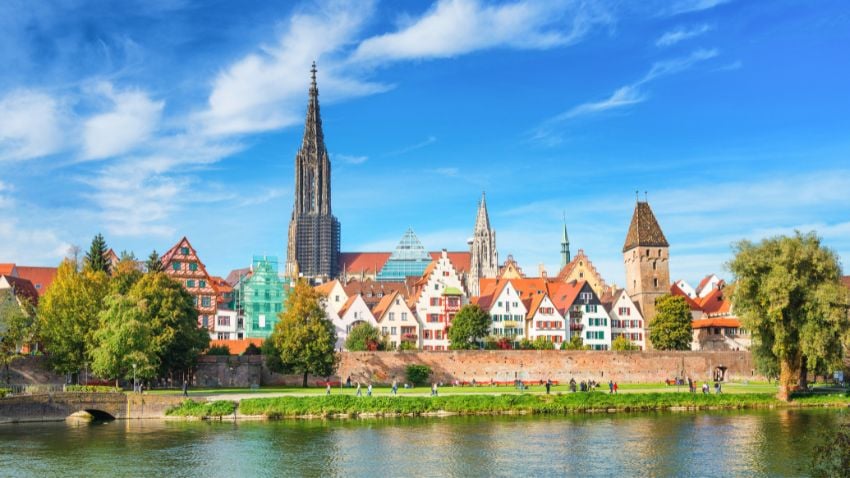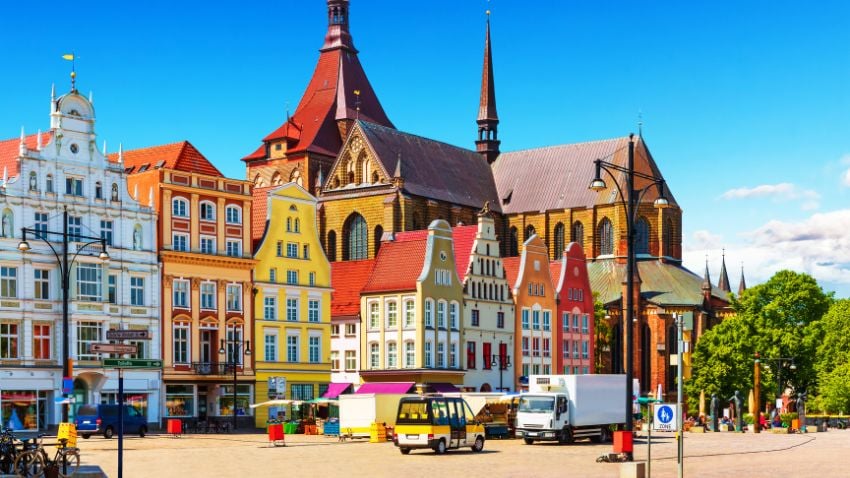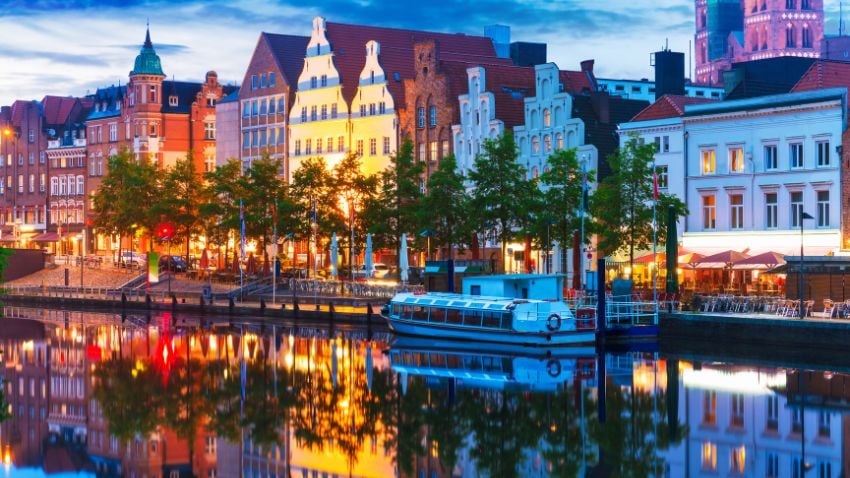Latin America’s Rightward Shift Continues In Honduras
Honduras’ newly elected president, Nasry Asfura of the conservative National Party, was sworn in on January 27, 2026. The election, held on November...

7 min read
In our previous article, Germany was on the brink of adopting a pivotal law to streamline the acquisition of dual citizenship. On January 19th, 2024, a significant milestone was reached when the German Bundestag approved a comprehensive overhaul of its citizenship legislation. This reform substantially simplifies the procedures for naturalization and acquiring dual citizenship, heralding a new era of possibilities for countless internationals living in Germany.
This development represents a monumental departure from Germany's former policy on dual citizenship, paving the way for millions of residents to seamlessly blend into the fabric of German society and actively engage in its democratic processes.
For many internationals, the highlight of the updated immigration statutes is undoubtedly the embrace of dual citizenship. In the past, those seeking to obtain German citizenship typically had to relinquish their original nationality.
Let's now delve deeper into the requirements and find out if you are eligible for dual citizenship.

Frankfurt, Germany City Skyline
Previously, a legal residency of eight years in Germany was a prerequisite for citizenship eligibility. This requirement has been reduced to five years for the majority of applicants. Furthermore, for internationals demonstrating "special integration achievements," such as outstanding language proficiency or community service, this period is even shorter, at three years.
The reform also significantly benefits children, providing a streamlined path to citizenship. Now, children born in Germany to at least one parent who has been legally residing in the country for five years will automatically be granted German citizenship, regardless of the other parent's nationality. This change eases the citizenship process for mixed-nationality families and nurtures an early sense of belonging among children.
Non-EU citizens who:
Have legally lived in Germany for five years (or three years if you have exceptional integration achievements);
Meet the requirements for basic integration, such as language proficiency and familiarity with German culture;
Have not been convicted of serious crimes or do not have a criminal record.
Children born in Germany:
To at least one German parent who has been a legal resident for five years.

Ulm, Germany
The acceptance of dual citizenship stands out as a pivotal update in the revamped legislation, removing the previous mandate for applicants to give up their original nationality upon receiving a German passport. This modification holds profound implications, especially for individuals from countries outside the European Union, enabling them to embrace German citizenship without cutting off their roots. Previously, the allowance for dual citizenship was limited to arrivals from EU states and under specific conditions; this forthcoming adjustment significantly broadens the scope of dual citizenship accessibility.
Furthermore, under this new rule, children obtaining German citizenship will also maintain their parents' nationality. This dual citizenship policy values and maintains the cultural heritage and connections to the parents' homeland, all the while providing children with the benefits and rights that come with being German citizens.
The updated citizenship legislation will remove the obligation for German nationals residing abroad to relinquish their German citizenship upon acquiring nationality in another nation. This significant revision reflects an understanding of today's global interconnectedness and the importance of sustaining connections with multiple countries. It provides increased versatility and prospects for those pursuing citizenship elsewhere without disconnecting from their German heritage, enhancing cultural diversity and encouraging worldwide bonds. Previously, exceptions were mainly made for those who had secured the Retention Permit (die Beibehaltungsgenehmigung).
This move towards more accessible dual citizenship underlines Germany's recognition of the global landscape's evolving nature and the benefits of preserving ties with various countries. The anticipated amendment aims to offer enhanced flexibility and opportunities for individuals desiring to obtain another country's citizenship without cutting off their German connections, thereby promoting cultural diversity and nurturing international relationships.
In acknowledgment of the unique challenges encountered by immigrants from the “Gastarbeiter” era, the updated German citizenship law will ease the language proficiency requirements for this demographic. Rather than the previously required B1 level of German, conversational German skills will now be deemed adequate for members of this generation. Furthermore, the citizenship test requirement will be eliminated for the Gastarbeiter group, making the naturalization process more accessible.
The term “Gastarbeiter generation” denotes the wave of guest workers who came to Germany, predominantly in the 1950s and 1960s, to mitigate the labour shortages post-World War II. These individuals, largely from southern Europe and Turkey, were initially envisioned to meet temporary labour demands but ultimately became an integral, enduring component of Germany’s societal and cultural mosaic. Their significant contribution to the economic revival and cultural enrichment of Germany underscores the importance of this legislative adjustment.

Rostock, Germany
The revamped German citizenship legislation emphasizes a holistic and detailed approach to evaluating applicants, spotlighting the importance of various criteria that demonstrate an individual's integration and positive contribution to German society. The legislation particularly values language proficiency, educational achievements, professional potential within Germany, active societal engagement, and adherence to the principles of freedom as critical factors in citizenship deliberations. This comprehensive evaluation ensures that those who significantly contribute to the societal fabric of Germany are appropriately acknowledged in the citizenship process.
A standout aspect of the updated law is the facilitation of a more expedited naturalization process designed to encourage quicker integration. By reducing the residency requirement for eligibility from eight years to five, the law makes the journey to German citizenship more straightforward and attractive. In exceptional instances, such as notable educational or professional accomplishments, societal contributions, or superior language proficiency, individuals may be eligible for citizenship in just three years, placing Germany as a leader among European countries in actively promoting integration into its society.
Though the law does not detail these exceptional scenarios exhaustively, consulting with experts is recommended to navigate these complexities effectively.
In its pursuit to streamline the path to citizenship, the new legislation maintains a critical balance by excluding individuals with certain criminal records. Reflecting Germany’s dedication to fostering an inclusive environment, the legislation explicitly states that criminal acts of anti-Semitism, racism, xenophobia, or other inhumane behaviours will disqualify one from obtaining German citizenship.
This clause is a testament to Germany’s firm stance against hate crimes, ensuring that the honour and benefits of German citizenship are reserved for those who truly embrace the values of respect and integrity of German citizenship.

Cologne, Germany
Settling in Germany involves immersing oneself in the local community and culture, which is essential for career advancement and raising a family. Embracing dual citizenship not only secures legal rights but also grants the right to vote in local, state, and national elections. This active role in Germany's vibrant country reflects that their journey in Germany is about more than just personal fulfillment; it is also about making a contribution to the country.
The strength of the German passport extends far beyond mere international recognition; it embodies the essence of global mobility and freedom. With German citizenship, individuals gain unparalleled access to a multitude of countries, facilitating seamless international travel for leisure, business, and educational pursuits. This extensive visa-free access not only opens up the world for exploration but also fosters deeper connections with diverse cultures and economies, enriching both personal and professional lives.
By acting as ambassadors of German culture and values, citizens with German passports leverage their global perspective to navigate international relations, business ventures, and academic endeavours with ease, thereby positioning themselves competitively on the global stage. The German passport thus serves as a powerful enabler of aspirations, offering boundless opportunities for growth, learning, and cross-cultural collaboration in today's interconnected world.
Possessing dual citizenship, particularly with German citizenship, provides substantial advantages within the European Union (EU). It enables individuals to live, work, and study across EU member states without facing immigration barriers, thus expanding professional opportunities continent-wide. Dual citizenship serves as a gateway to career advancement, educational pursuits, and diverse professional networks, fostering collaboration and enhancing one's resume for global employment. This access facilitates contribution to and benefit from the integrated European economy, ultimately boosting mobility and elevating career prospects for individuals seeking to embrace the opportunities offered by the EU fully.
Under the new legislation, if you possess German citizenship, your children automatically inherit this status, streamlining not only family travel arrangements but also educational planning. This provision ensures that your offspring are granted the same extensive access to over 194 countries without the need for visas, just as their parents enjoy. Additionally, it opens up a wealth of educational opportunities across the European Union, where they can study without the constraints and complexities of immigration requirements. This aspect of the law not only simplifies logistical considerations for international travel but also provides families with the long-term benefit of easier access to diverse and high-quality educational systems, fostering a truly global perspective from a young age.
Dual citizenship serves as a bridge between your German identity and your original nationality, enabling you to nurture and maintain robust cultural and familial connections with both countries. It affords you the privilege to immerse yourself and participate actively in the cultural events, traditions, and family gatherings of both nations. This unique position allows you to preserve and pass on your rich cultural heritage, ensuring that you and your family remain deeply connected to your roots while also embracing the new culture you live in.
Moreover, retaining your original nationality alongside German citizenship means you can travel back to your home country as seamlessly as you would within Germany without facing any immigration barriers.
This ease of movement enriches your life with the freedom to stay closely linked to your family and cultural origins, ensuring that distance does not dilute these vital connections. It provides a sense of belonging and identity that is multifaceted and inclusive, celebrating the diversity of your experiences and heritage.
Dual citizenship, particularly in Germany, significantly streamlines property ownership and investment opportunities both within Germany and in one's country of origin. This status facilitates navigating legal and financial frameworks for real estate transactions in Germany, providing stability and attractiveness for investors. Similarly, maintaining one's original nationality simplifies property investment processes in the home country, enabling a tangible connection to roots through real estate.
Furthermore, German citizenship offers substantial advantages for entrepreneurial endeavours, easing business registration, access to funding, and overall business establishment compared to non-citizens. These benefits vary based on individual circumstances, aspirations, and utilization of opportunities available in both Germany and the home country.

Lubeck, Germany
In summary, Germany's adoption of dual citizenship legislation, originally crafted to draw in foreign talent and recognize the valuable contributions of guest workers, carries unexpected benefits for native Germans pursuing a second passport. As Germany grapples with pressing demographic shifts and economic hurdles, this policy revision emerges as a strategic response, promising advantages for both foreign nationals and citizens of German origin. By embracing dual citizenship, the nation not only addresses immediate workforce needs but also lays the groundwork for long-term societal and economic resilience. In essence, this legal adjustment offers a pathway for thousands, if not millions, to negotiate the intricate processes of citizenship acquisition, thereby fostering inclusivity and broadening opportunities for all involved. We will update this article as soon as we know when this will be implemented. If you want to stay on top of things, having a second residency or passport is of the utmost importance. That's why put together How To Get A New Passport Fast In 2024. Inside, you will discover the best passports to secure your new life abroad.
If you want the best intel from the expat world, including profitable offshore opportunities, little-known tax-saving strategies, and hard-won insights on immigration, passports, and Plan-B residencies, all delivered to your inbox every single week, then join our daily correspondence, EMS Pulse®. Currently enjoyed by over 84,000 expats and expat-hopefuls worldwide. Fill in the form below to join our newsletter free:

Written by Mikkel Thorup
Mikkel Thorup is the world’s most sought-after expat consultant. He focuses on helping high-net-worth private clients to legally mitigate tax liabilities, obtain a second residency and citizenship, and assemble a portfolio of foreign investments including international real estate, timber plantations, agricultural land and other hard-money tangible assets. Mikkel is the Founder and CEO at Expat Money®, a private consulting firm started in 2017. He hosts the popular weekly podcast, the Expat Money Show, and wrote the definitive #1-Best Selling book Expat Secrets - How To Pay Zero Taxes, Live Overseas And Make Giant Piles Of Money, and his second book: Expats Guide On Moving To Mexico.

Honduras’ newly elected president, Nasry Asfura of the conservative National Party, was sworn in on January 27, 2026. The election, held on November...

For a growing number of Americans, cost-of-living math no longer works. Housing feels harder to reach, everyday costs keep climbing, and long-term...

Costa Rica has become one of the most popular expat and digital nomad destinations in Latin America, known for its natural beauty, relaxed lifestyle,...